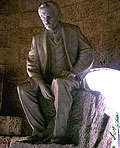|
Cuba is an island that has
never ceased to yield poets. The first known poem, "Mirror
of Patience", was written in 1608 by the Canarian Silvestre
de Balboa at the Villa of Puerto Principe. By the first
half of the 18th century, around 1733, the first theatre
play El Principe Jardinero y Fingido Cloridano written by
a Cuban author, Captain Don Santiago de Pita, was performed.
Native bourgeoisie attained an important accolade in 1790
with the materialisation of Papel Periodico de La Habana,
the first newspaper published on the island. Manuel de Zerqueiro
(1760-1846) and Manuel Justo Ruvalcaba (1769-1805) are regarded
as the most representative poets of the 18th century. In
both poems the Cuban feelings rise slowly with the love
and delight for the land's fruitfulness, dedicating their
lines to glorify tropical fruits like pineapple and mamey.
It was in the 19th century that the great poets were born
and the tradition in Cuban poetry began to grow solidly.
Deep and beautiful lines as those of Julian del Casal, Placido,
El Cucalambe, Juan Clemente Zenea, Gertrudis Gomez de Avellaneda,
Juana Borrero, Jose Jacinto Milanes, Luisa Perez de Zambrana,
Jose Maria Heredia and Jose Marti, left a trail of such
exquisite lyrical poetry that, despite romanticism, in some
cases exceeded the limits of feelings to offer poems of
complete commitment. Cirilo Villaverde wrote the first great
novel Cecilia Valdez, in the 19th century, it is an essential
gift. Other important novelists from this period are Ramon
Meza and Gertrudis Gomez de Avellaneda. Poetry of the 20th
century, restless in a diversity of styles as the century
itself, comes up in the world with the names of Jose Zacarias
Tallet, Regino Pedroso, Emilio Ballagas, Regino Botti, Nicolas
Guillen, Carilda Oliver, Heberto Padilla, Virgilio Piñera,
Jose Lezama Lima, Roberto Fernandez Retamar, Gaston Baquero,
Nancy Morejon, Anton Arrufat, Eliseo Diego (Juan Rulfo Prize
for his life's work), Cintio Vitier, Fina Garcia Marruz,
Mirta Aguirre, Pablo Armando Fernandez, Guillermo Rodriguez
Rivera, Angel Augier and Dulce Maria Loynaz (Cervantes Prize,
awarded by the Royal Academy of the Spanish Language). The
XX century developed quickly with writers that soon began
to achieve important international awards. The library of
novels for this century gathers the works of Miguel del
Carrion, Jose Soler Puig, Dulce Maria Loynaz, Severo Sarduy,
Miguel Barnet, Senel Paz, Pablo Armando Fernandez, Luis
Rogelio Nogueras, Guillermo Cabrera Infante, Virgilio Piñera,
Reinaldo Arenas, Jesus Diaz, Jose Lezama Lima, Abilio Estevez
and Alejo Carpentier (Cervantes Prize, awarded by the Royal
Academy of the Spanish Language). Currently, story writing
is a style that has developed into a solid tendency among
young writers; names like Alberto Garrido and Ronaldo Menendez
(both winners of the Casa de las Americas prize), attest
the eloquent performance of Cuban literature.
Cuban literature, both new
and old, abounds in Havana. Street markets often provide
some prized books many of which are over 100 years old.
|

Jose Martí

Alejo Carpentier
|











































